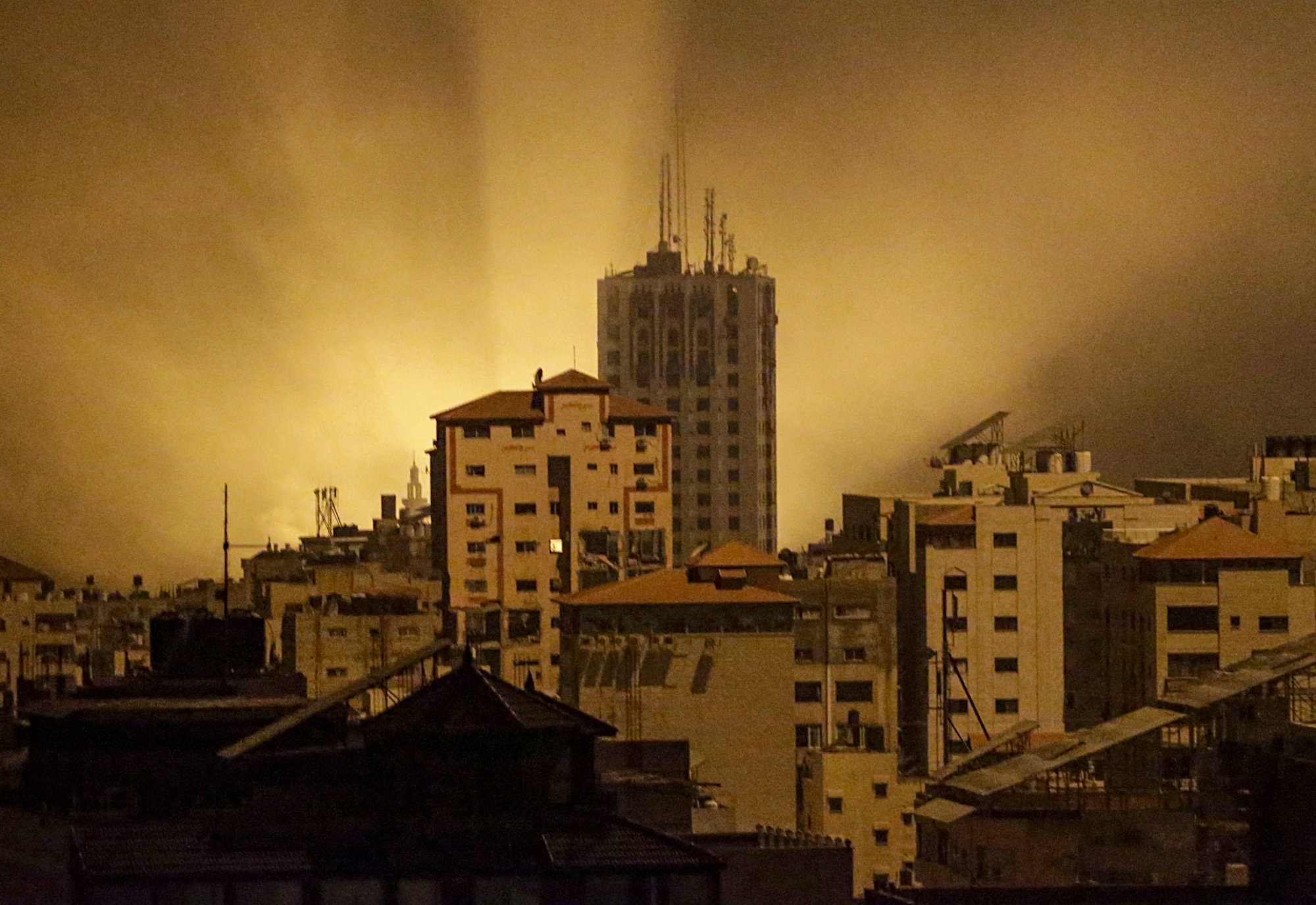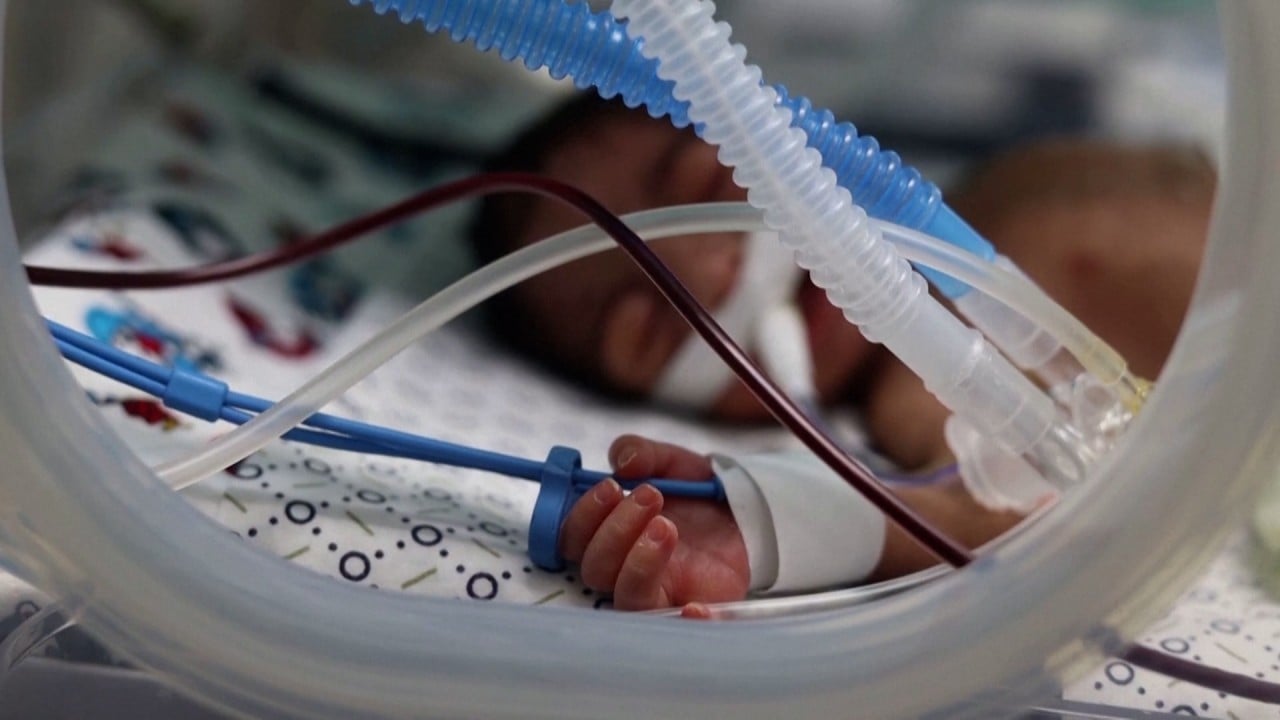Prime Minister Benjamin Netanyahu said Israel would consider “tactical little pauses” in Gaza fighting to facilitate the entry of aid or the exit of hostages, but again rejected calls for a general ceasefire despite growing international pressure.
Speaking in a US television interview, Netanyahu, whose country has vowed to destroy Gaza’s Hamas rulers, said he thought Israel would need security responsibility over the Palestinian enclave for an “indefinite period” after the war.
Asked about the potential for humanitarian pauses in fighting, an idea supported by Israel’s top ally the United States, Netanyahu said a general ceasefire would hamper his country’s war effort.
“As far as tactical little pauses – an hour here, an hour there – we’ve had them before. I suppose we’ll check the circumstances to enable goods, humanitarian goods to come in, or our hostages, individual hostages, to leave,” Netanyahu told ABC News on Monday.
“But I don’t think there’s going to be a general ceasefire.”
Both Israel and the Hamas militants who control Gaza have rebuffed mounting international pressure for a ceasefire. Israel says hostages taken by Hamas during its rampage in southern Israel on October 7 should be released first. Hamas says it will not free them nor stop fighting while Gaza is under assault.
Since the attack in which Hamas killed 1,400 people in Israel and seized more than 240 hostages, Israel has struck Gaza from the air, imposed a siege and launched a ground assault, stirring global alarm at humanitarian conditions in the enclave.
The health ministry in the Hamas-controlled enclave said at least 10,022 Palestinians have since been killed, including 4,104 children.
International organizations have said hospitals cannot cope with the wounded and food and clean water are running out with aid deliveries nowhere near enough.
“We need an immediate humanitarian ceasefire. It’s been 30 days. Enough is enough. This must stop now,” said a statement from the heads of several United Nations bodies on Monday, including UN High Commissioner for Human Rights Volker Turk, World Health Organization head Tedros Adhanom Ghebreyesus and UN aid chief Martin Griffiths.
Washington has been pushing hard to arrange pauses in the conflict to allow aid to enter. But it has argued, like Israel, that Hamas would take advantage of a full ceasefire to regroup.
US President Joe Biden discussed such pauses and possible hostage releases in a phone call with Netanyahu on Monday, reiterating his support for Israel while emphasising that it must protect civilians, the White House said.
‘Graveyard for children’
UN Secretary General Antonio Guterres warned on Monday that Gaza is becoming a “graveyard for children”, calling for an urgent ceasefire in the enclave.
“Ground operations by the Israel Defense Forces and continued bombardment are hitting civilians, hospitals, refugee camps, mosques, churches and UN facilities – including shelters. No one is safe,” Guterres told reporters.
“At the same time, Hamas and other militants use civilians as human shields and continue to launch rockets indiscriminately towards Israel,” he said.
The comments came as the UN Security Council on Monday failed again to agree on a resolution on the month-long Israel-Gaza war.
Israel-Gaza war: Palestinian death toll above 10,000, UN says ‘enough is enough’
Israel-Gaza war: Palestinian death toll above 10,000, UN says ‘enough is enough’
Despite more than two hours of closed-door discussions on Monday, differences remained. The US is calling for “humanitarian pauses” while many other council members are demanding a “humanitarian ceasefire” to deliver desperately needed aid and prevent more civilian deaths in Gaza.
“We talked about humanitarian pauses and we’re interested in pursuing language on that score,” US deputy ambassador Robert Wood told reporters after the meeting. “But there are disagreements within the council about whether that’s acceptable.”
Earlier on Monday, Guterres told reporters he wanted an immediate humanitarian ceasefire in Gaza and a halt to the “spiral of escalation” already taking place from the occupied West Bank, Lebanon and Syria to Iraq and Yemen.
‘Quaking in their boots’: Malaysians, Indonesians ditch brands over war in Gaza
‘Quaking in their boots’: Malaysians, Indonesians ditch brands over war in Gaza
Guterres said international humanitarian law, which demands protection of civilians and infrastructure essential for their lives, is clearly being violated and stressed that “no party to an armed conflict is above” these laws. He called for the immediate unconditional release of the hostages Hamas took from Israel to Gaza in its October 7 attack.
China, which holds the Security Council presidency this month, and the United Arab Emirates, the Arab representative on the council, called Monday’s meeting because of the “crisis of humanity” in Gaza, where more than 10,000 civilians have been killed in less than a month.
UAE Ambassador Lana Nusseibeh said all 15 council members “are fully engaged” and efforts will continue to try to narrow the gaps and reach agreement on a resolution.

Who governs Gaza after the war?
Asked during the ABC interview who should govern Gaza when the conflict is over, Netanyahu said: “I think Israel will for an indefinite period … have the overall security responsibility because we’ve seen what happens when we don’t have that security responsibility.”
President Joe Biden’s administration has informed the US Congress that it is planning a US$320 million transfer of precision bombs for Israel, a source familiar with the plan said on Monday.
Israel said on Monday it was striking Hezbollah targets in Lebanon in response to a barrage of rockets fired at northern Israeli cities. The Israeli military said it detected around 30 launches from Lebanon in an hour.
The Iran-backed Hezbollah has been exchanging fire with Israeli forces across the Lebanese-Israeli frontier since the Hamas-Israel war began on October 7, in the worst fighting there since Hezbollah and Israel fought a war in 2006.
Hamas said it had launched 16 missiles towards Nahariyya and Southern Haifa in Israel.


